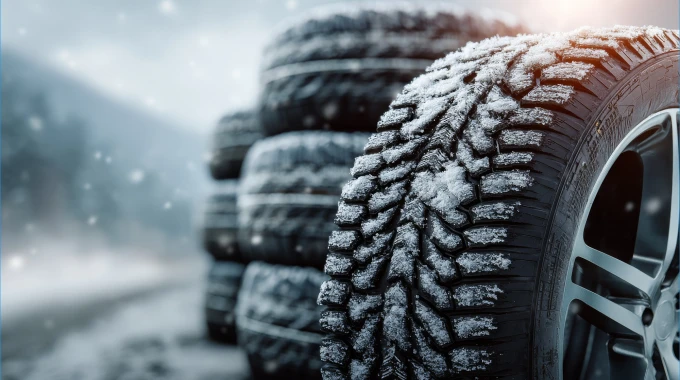
Diesel vs Gas: Benefits & Differences Explained
When you’re in the market for a new vehicle there’s no shortage of big questions to answer and key decisions to make.
Things like, what kind of vehicle body do you need—sedan, truck, or SUV? What kind of transmission do you need—automatic or manual? Will you need 4WD or AWD? And, of course, what’s your budget?
There’s one question that many overlook, however, and that’s whether they should get a gas- or diesel-powered vehicle. Even though they still only make up a fraction of all vehicles on Canadian roads today, diesel-powered cars, trucks, and SUVs are gaining in popularity. So before you narrow down your options, make sure you fully consider whether a gas- or diesel-powered vehicle is right for you.
If you’re on the hunt for a new ride and you’re not sure what the real differences are between gas and diesel vehicles, here’s a quick rundown on everything you need to know.
First, how do diesel and gas engines work?
To get a proper grasp of which engine type might be best suited to your needs, it’s helpful to start with a basic understanding of how each one works.
Both types of engines use internal combustion
In an internal combustion engine, the air is drawn into the engine and mixed with fuel—either gas or diesel. This mixture is then compressed by the engine’s cylinders and ignited to power the pistons and crankshaft, which activates the vehicle’s transmission and wheels.
The difference lies in the ignition stage
In a gas-powered engine, a spark plug ignites the fuel. In a diesel-powered engine, no spark plug is needed. Instead, because diesel fuel has a higher compression ratio than gas, it can compress the air drawn into an engine’s cylinders to an extreme degree, wherein it spontaneously ignites. If this same process were to occur in a gas-powered vehicle, it would damage the engine.
Diesel packs more power
In a nutshell, diesel packs more power—or energy—than gas. This allows it to ignite in the engine at a higher compression ratio than gas.
Benefits of buying a diesel vehicle
Better fuel efficiency
When it comes to fuel efficiency, it’s no contest. Diesel contains 10-15% more energy than gas, according to the US Department of Energy. In real-world terms, that equates to diesel offering 20-35% more fuel efficiency than gas-powered vehicles.
Higher resale values
Greater fuel efficiency comes at a cost, however. Overall, diesel-powered vehicles are more expensive than their gas counterparts. The silver lining is they also depreciate slower, which is welcome news when you’re looking to sell or trade-in your vehicle down the line.
Greater acceleration and towing capacity
Mainly due to diesel’s higher compression ratio, diesel-powered engines produce greater torque than gas vehicles. And with greater torque comes greater acceleration and towing capacity. This means faster off-the-line power (when you hit the gas on a green light) and an ability to haul trailers and other equipment.
Benefits of buying a gas vehicle
Lower fuel costs
By and large, gas is almost universally cheaper than diesel no matter where you’re filling up in Canada. In some areas of the country, you may find diesel to be cheaper than gas but that’s a rare find. You might be visiting the pumps a little more with a gas vehicle, but at least you’ll be paying a little bit less as well.
Less costly repairs
There’s a longstanding debate over whether diesel or gas engines cost more to maintain. Some argue diesel engines incur less wear and tear due to there being fewer part, so repairs are required less frequently.
While this might be true, the fact that diesel vehicles make up such a small percentage of cars and trucks on the road means parts and labour costs for repairs are often far more costly.
Gas is easier to find
No matter where you’re driving, gas is readily available at every gas station you’ll pass. The same can’t be said for diesel, as not all gas stations sell it. If you’re only commuting around an area you know well, you can easily learn which gas stations you can go to for diesel. But if you’re in the habit of taking road trips and driving in unfamiliar areas, having a gas vehicle is more convenient.
Find your next gas or diesel ride at Canada Drives
Whether you’re looking for a gas, diesel, electric, or hybrid vehicle, Canada Drives sells hundreds of certified cars and trucks. Take a look in the online showroom today, where you can filter by fuel type as well as features like drivetrain, seating capacity, and more.







